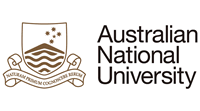The ANU Battery Storage and Grid Integration Program and The Research School of Chemistry, ANU, are looking for a talented and motivated PhD student interested in the areas of materials (electrodes and electrolytes) for new battery chemistries such as sodium-ion (Na-ion), potassium-ion (K-ion) and dual-ion batteries.
The currently dominant Li-ion batteries as well as their sustainable alternatives based on Na, K and dual-ion chemistries are enabled by their electrode and electrolyte materials, which define all the performance characteristics of these batteries. The ANU research group works on the discovery and development of electrode materials and electrolytes that will lead to the improvement of all these battery systems. Cutting-edge materials synthesis, materials characterisation methods and the evaluation in the electrochemical cells, including in-situ methods, are parts of the battery research undertaken in the group.
The research projects will take place in a brand-new, state-of-the-art Battery Laboratory recently launched by the ANU:
https://bsgip.com/facilities/battery-lab/
The core of the project is focused on studying dual-ion batteries. Instead of the traditional cation intercalation typical for the cathodes of various metal-ion batteries, these cells use anions (e.g., PF6-, BF4-, TFSI-, ClO4-, SbF6- and AsF6-) to intercalate into appropriate cathode hosts. This process is different from a traditional metal-ion battery, in which the so called “rocking chair” mechanism of charge storage is in operation. In dual-ion batteries, the processes in the anode and cathode are facilitated by two different ions. However, its anode is identical to that used in metal-ion battery (e.g., lithium-ion, sodium-ion or potassium-ion). The anion intercalation happens at very high potentials (>4.5 V vs reference metal, much higher than potentials of state-of-the-art battery cathodes). Hybrid capacitor can be constructed in a similar way, using intercalation of anions into the battery-type cathode and adsorption of cations onto the surface of a capacitive anode. The PhD project will investigate materials for such innovative cells.
ANU is one of Australia’s top universities and is constantly ranked in the top 50 worldwide.
How to apply
If you would like to be considered for this opportunity, please contact: Associate Professor Alexey Glushenkov at [Email Address Removed] and provide your CV and full academic transcripts.

 Continue with Facebook
Continue with Facebook



